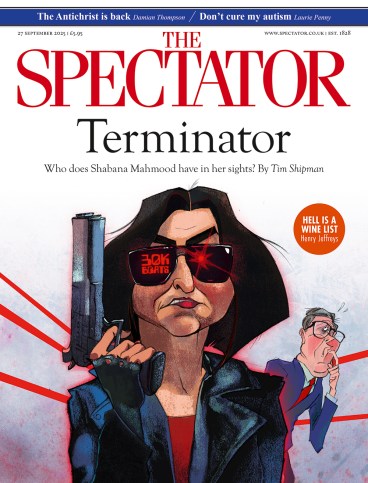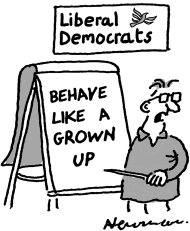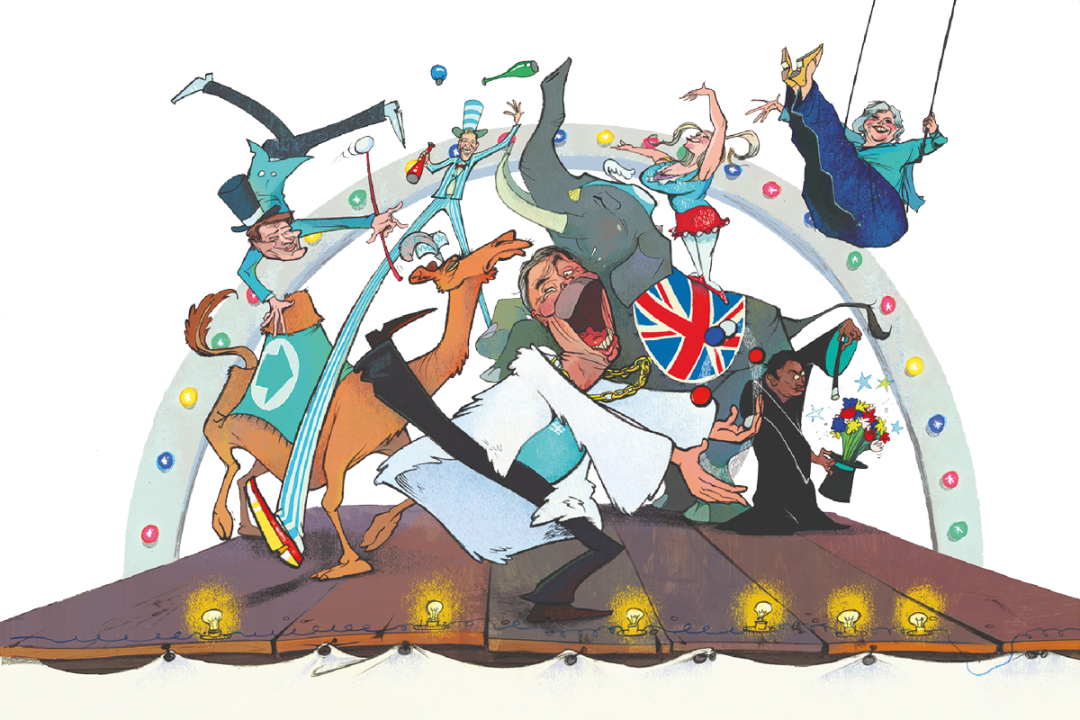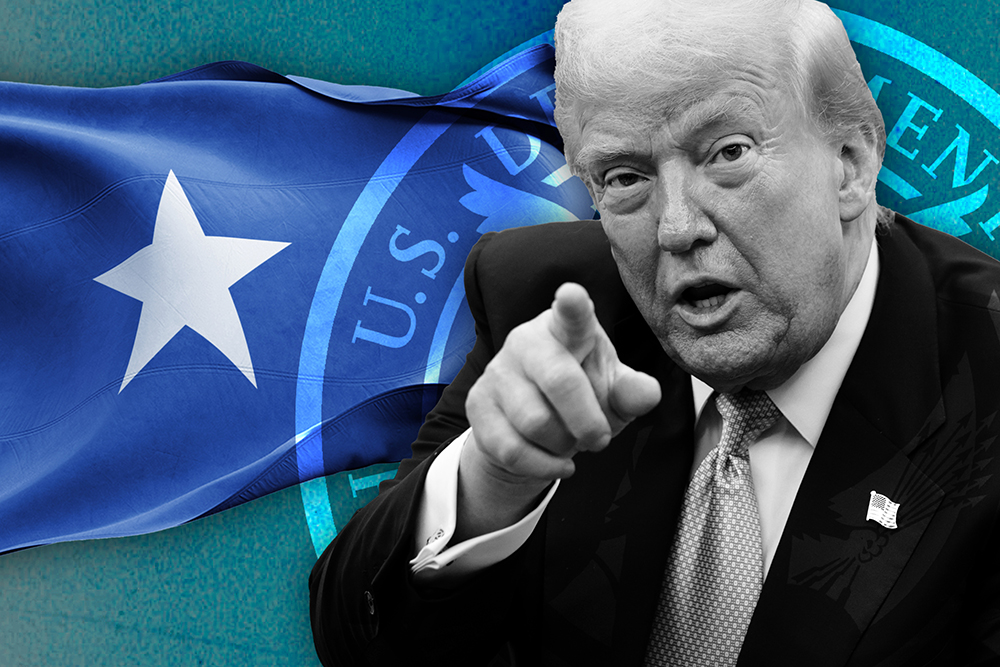
It is the question dominating bars and fringe debates this party conference season: what exactly is driving Reform UK’s popularity? Various explanations are proffered: the collapse of the two-party system, fickle voter tastes, the rise of populism across the West. But these are symptoms of a much greater shift: the new information age, unleashed by the internet. In a nation whose politics have long been characterised by venerable institutions, Reform, born in 2020, can claim to be Britain’s first successful e-party.
Like most apparent overnight successes, Reform has in fact been years in the making. For much of the 2000s, Nigel Farage struggled to get anywhere with his Eurosceptic messaging. His speeches in Brussels fell on deaf ears; his quotes were often attributed to Tory MPs by newspapers in London. But the internet changed all that. YouTube made Farage famous, showcasing his attacks on Tony Blair and Herman Van Rompuy, the then president of the European Council. ZeroHedge – a libertarian news aggregator site – helped bring Farage’s views on the eurobanking crisis to tens of thousands of online followers.
Farage then drew inspiration from the continent. Nowhere was the shift in power from old media to new better demonstrated than in Italy. The plutocrat Silvio Berlusconi had monopolised the media for decades. But in the mid-2010s, the populist Five Star party – fronted by comedian Beppe Grillo – used the internet to build an army of supporters. Like Five Star, Reform used a private company to help create a movement with a tightly controlled central structure. ‘Speed’ and ‘authority’ are the two benefits of this that are most often cited within Reform. One aide contrasts the approach with the ponderous Tory set-up, a Victorian-era model of associations and ancient local rivalries. Another cites a statement by Keir Starmer about flag protests, delivered a fortnight after they began: ‘That was the story two weeks ago.’
There is an irony that Farage, a self-consciously traditional figure, is at the forefront of this change. The 61-year-old, who one Reformer affectionately calls ‘the world’s most offline man’, has built the biggest online platform in British politics. Some 6.7 million follow him on various platforms, with 500,000 additions in the past 60 days. That is more than Starmer (2.8 million), Kemi Badenoch (500,000) and Ed Davey (200,000) combined. One aide suggests he could have ten million followers by 2029 – ‘enough to win the election on social media alone’. Forty years ago, a political party’s press strategy might have involved targeting young men in the Sun, middle-aged women in the Mail and pensioners in the Express. Now, a single social media hit can reach all three. ‘TikTok is for Gen Z, Instagram is for millennials and Facebook is for boomers,’ is how one Reform source puts it.
As late as September last year, ‘Reform UK was literally just a Twitter account with five MPs’
Around Farage is a core of Ukip long-marchers and ever-online Zoomers. Llyr Powell, 30, is typical. As a teenager, he worked overtime shifts to save for a Magaluf lads’ holiday, but for his efforts he ended up breaching the EU Working Time Directive. Outraged, he researched the law online, finding instead a YouTube clip of Farage which convinced him to sign up to Ukip. Twelve years on, his selection for next month’s Caerphilly Senedd by-election is seen by long-standing Farage allies as a ‘coming of age’ moment for Reform. Powell is the first former Farage backroom boy to stand for national public office in a winnable seat.

The digital world influences policy too. David Cameron might once have declared that ‘Britain and Twitter are not the same thing’, but Elon Musk’s X is clearly shaping much of the British right’s thinking. ‘It allows the agenda to be set by other actors who would otherwise have been excluded from national debate,’ says one Reformer. The social media sphere has influenced Farage’s stance on cryptocurrencies and the Online Safety Act. It offers Reform a ready vocabulary too: witness Zia Yusuf’s use of the phrase ‘Boriswave’ at this week’s press conference on migration, referring to the record migrant numbers during Boris Johnson’s premiership. Internally, influencer-style phrases such as ‘content creation’ are used to refer to stunts like the airport departures board for a press conference on deportation. Ahead of Tory conference, more ‘content’ is being prepared. Rival MPs recently raised eyebrows at Suella Braverman’s arrival from dinner with Reform’s chief whip prior to votes on the Employment Rights Bill.
For Reform, social media is a battleground with favourable terrain. It offers a marked contrast to parliament, where five MPs would have been a negligible force in the pre-internet age. Other parties have had to bolt social media on to their existing models, whereas Reform’s online presence predated their ground game. In the general election, the party fielded hundreds of ‘paper’ candidates – yet generated nearly three times as many social media interactions as Labour. As late as September last year, says one veteran, ‘Reform UK was literally just a Twitter account with five MPs’. The 250,000 members, 900 councillors and new party branches all flowed from that. The internet has, in the words of one Tory, ‘only served to put rocket-boosters’ under the post-Brexit realignment.
The mantra endlessly repeated among Farage’s team is that social media allows them to ‘meet the voters where they are’. One reasons is that ‘you are more likely to meet voters online than door-knocking on their houses’. It is a lesson which rivals such as Robert Jenrick, the shadow justice secretary, have learned as well. Jenrick’s video in May confronting Tube fare dodgers garnered 15 million views: proof that Tory politicians can occasionally do good social media. ‘No one was talking about fare dodging before,’ says an ally. What unites Farage and Jenrick’s teams is a belief that they can spark, shape and dictate public debate, rather than meekly follow rules determined by others.
The information revolution unleashed by the internet has often been likened to the invention of the printing press. For some, it represents a great democratisation of knowledge and power. For others, it risks triggering decades of violence, conflict and societal breakdown across Europe. Among Liberal Democrat, Labour and even Tory politicians, there is real fear at this shift in the established order. But for Farage and his team, there is method in the madness.








Comments